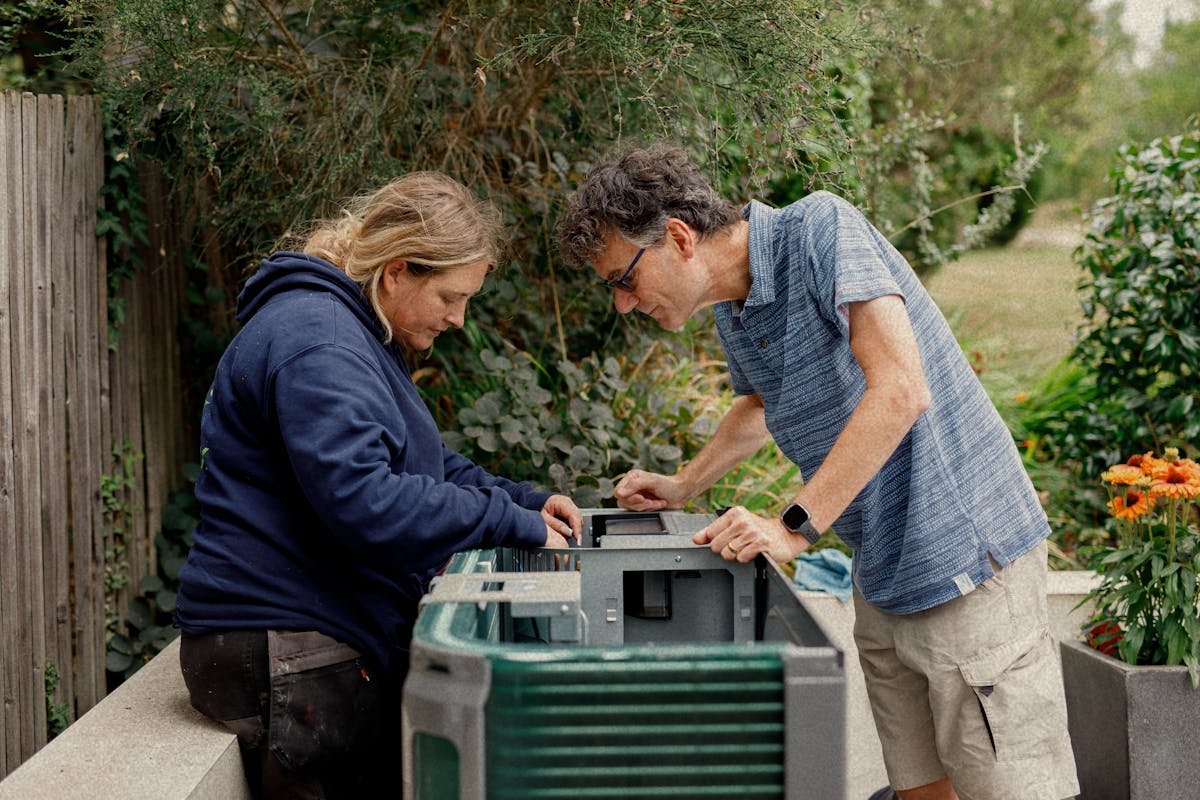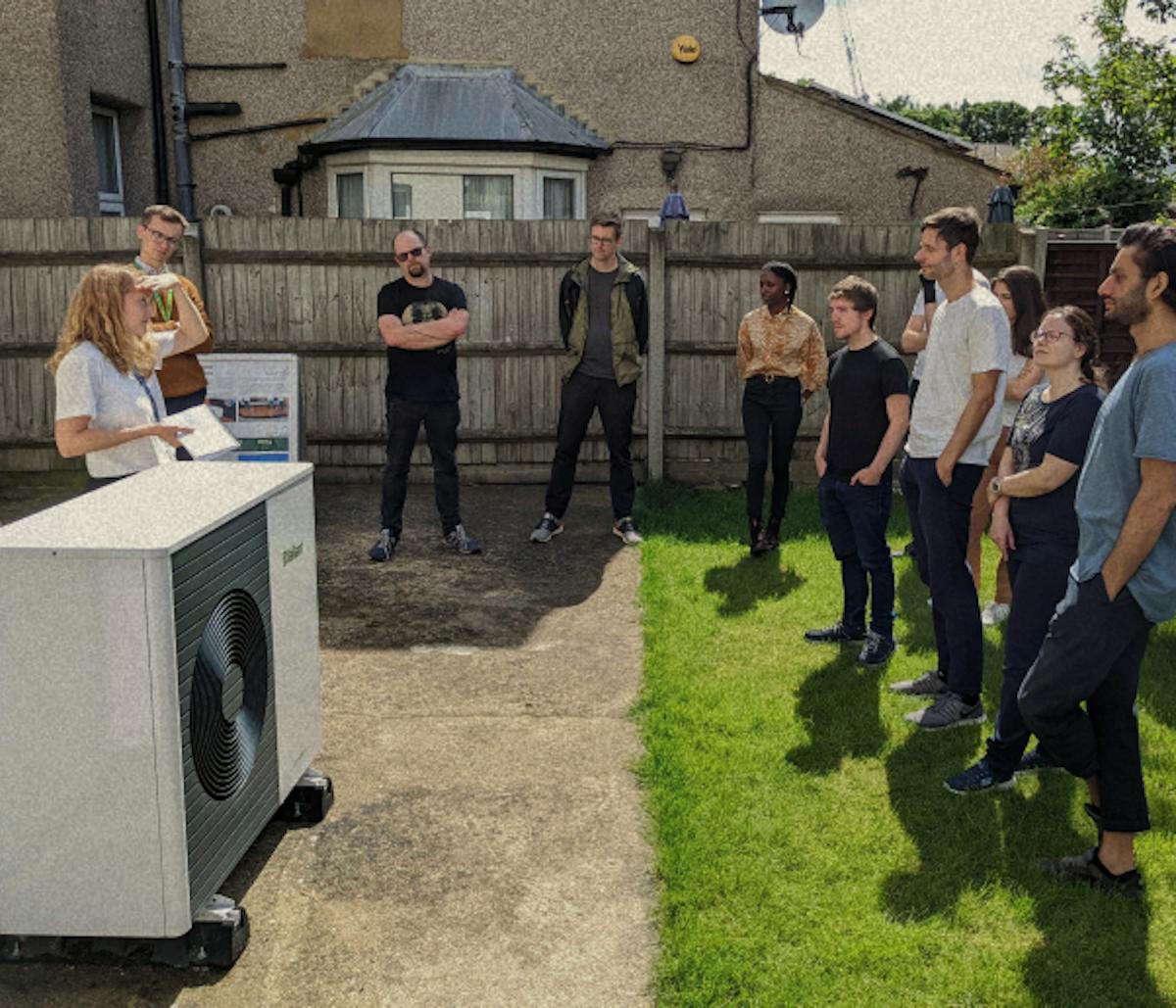The UK Government’s ambitious commitment to upgrade five million homes by the end of this parliament through the Warm Homes Plan relies on people taking action in their own homes to improve energy efficiency and install low carbon technologies, such as heat pumps, solar PV and batteries.
With signals from the UK Government that access to trusted and impartial advice will be addressed to some extent in the Plan [1], drawing on our 25 years’ advice delivery experience, we set out why sufficient advice and support, aimed at empowering households, must be central to the Warm Homes Plan.
The current advice landscape
Advice services are already in place in Scotland, Wales and to some extent in Northern Ireland. However, there’s currently a distinct gap in the provision of impartial, tailored advice in England. Energy Saving Trust research reveals that half (49%) of homeowners in England don’t know where to get independent, impartial advice on making improvements to reduce their home’s carbon footprint - and 36% aren’t confident in assessing where to start. [2]
While there are pockets of local advice and support available to households in parts of England and more specialised one-stop-shop services being set up by some combined authorities, overall, access to advice is patchy and variable.
The current retrofit journey for many households looking to upgrade their home in England is therefore complex and confusing. If we are to decarbonise homes at the necessary pace and scale to reach our climate targets, advice shouldn’t be dependent on a postcode lottery and must be available to all.
The impact of advice
From our experience delivering the flagship advice service Home Energy Scotland, on behalf of the Scottish Government, we know that giving people clear, action-focused retrofit advice significantly drives up rates of home upgrades and uptake of low carbon technologies. After receiving advice from a Home Energy Scotland advisor, 42% of customers install at least one energy efficiency measure, low carbon heat or renewable energy improvement and a further 42% of customers plan to install at least one in the next 12 months.
Tailored advice also gives households the confidence that they are carrying out upgrades that are right for them and their home. Importantly, it links people with access to financial support at a national or local level that they may be eligible for. Home Energy Scotland advice is delivered online, by phone and in person, helping everyone who engages with the service to overcome financial barriers to retrofit.
By helping to accelerate uptake of low carbon technologies, such as heat pumps, solar panels and batteries, advice will help meet the UK Government’s 2030 clean power target. Increasing the roll out of energy efficiency upgrades is also a crucial component of the clean power mission, given that it will reduce overall and peak household energy demand.
Providing post-installation advice will also be key to ensure households know how to operate, maintain and maximise the benefits of any new installation and guarantee carbon emission and energy bill savings. Advice would also direct households to further support or redress if something goes wrong, so it can be quickly rectified.
A national advice service is a low cost, high impact measure which is proven to work and Energy Saving Trust’s first-hand delivery experience shows that advice provides significant return on investment. Every £1 spent on expert, tailored advice returns almost £15 in lifetime energy bill savings for the households we advise through Home Energy Scotland. In 2024-25 alone, almost 100,00 people benefitted from free energy advice through Home Energy Scotland, generating an estimated £3.8 million in lifetime savings on energy bills for low-income households.
Integrating national and local advice
We understand the value of a joined-up approach where local advice services and trusted intermediaries work alongside and in partnership with nationally coordinated services, from our work delivering Home Energy Scotland. A key element of the service is its partnerships with organisations such as charities and health care organisations, to ensure support reaches vulnerable and hard to reach households.
We’ve seen the impact of local advice through our work with several English combined authorities and councils. Home Energy Advice North East, which we deliver on behalf of North East Combined Authority, offers comprehensive, personalised advice to households and provided advice to more than 2,000 people in its first year.
It will be important that a national retrofit advice service in England works in partnership with and supports existing and future local advice services. This will ensure a simple customer journey for households and effective referral pathways into and out of each service to enable people to get the most appropriate support for them.
Our experience tells us that advice must be a key part of the Warm Homes Plan to deliver home energy upgrades at scale. It will help the UK Government to deliver on its ambitions and make people’s homes across the country warmer and more affordable to heat.
References
[1] House of Commons Energy Security and Net Zero Committee: Retrofitting homes for net zero: Government Response
[2] Research conducted by Censuswide, among a sample of 4,292 homeowners in England. The data was collected between 7 - 11 April 2025.









